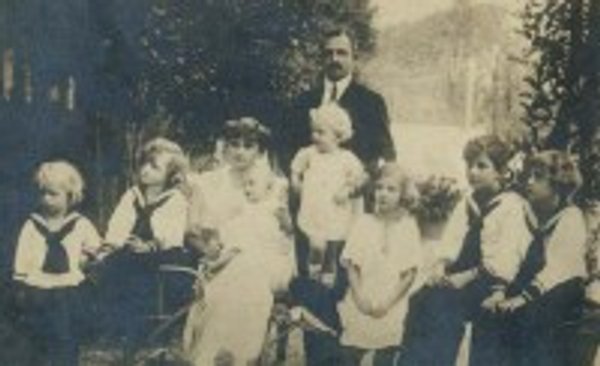ROME, 3rd October 2004. It was a special day, yet ignored by the world: Pope John Paul II declared “Blessed” the last Emperor/King of Austria-Hungary, Charles I. The beatified monarch died in exile in 1922, 35 years old, poor and despised by the victors of the First World War. He died in the island of Madeira, a Portuguese territory in the Atlantic. His widow, Empress Zita of Parma, was left alone to look after their six sons and two daughters. John Paul II wanted that the feast day of Blessed Charles be the couple’s wedding day, October 21.
Charles I was proclaimed king in 1916, the year when the world was witnessing the destruction of Europe: blind and proud nationalism armed with military power caused the brutal and senseless loss of lives (young soldiers of both sides of the conflict dying by the thousands every day). The young king was the only European leader to heed the appeals of Pope Benedict XV for peace and justice. Charles’ peace overtures failed, simply because the prevailing policy at that time was “total military victory over the enemy”.

Le Mans, France, 10th December 2009: the Bishop of Le Mans opened the “Cause for the Beatification of Empress Zita”. She died in 1989. Someday the whole world will hear of a royal couple (Charles I and Zita), whose lives proved that “Royalty” and “Holiness” need not negate each other.
Metz, France, 29th May 2009: The Archbishop closed the process of beatification of Robert Schuman, the Father of what is now the European Union. As France’s Foreign Minister after World War II, he took the initiative to build bridges of cooperation with Germany. A man brought up in both cultures, French and German, it caused him deep sorrow to see these two nations in conflict in two world wars. Schumann’s love for his country did not make him fall into “nationalism” (the “worship” of one’s nation, and disdain for others).

These future saints were great leaders because they knew the wide gulf separating their calling to be engaged in world affairs (“secularity”) from the “secularism” that had gripped Europe since the 18th century, with its battle cry “Away with God, this world is ours”. To which, Schumann would reply: “From it (i.e., God’s Word), I learn to see things from God’s viewpoint, instead of repeating the slogans of the world”.
Madrid, 9th January 1959. The future saint, Josemaría Escrivá, wrote in his letter to his spiritual children in Opus Dei: “Those of you who find yourselves with a vocation to politics should work without fear and realize that if you didn’t do so, you would sin by omission. Work with professional seriousness, paying attention to the technical demands of that work of yours, setting your sights on Christian service to all the people of your country; and fostering harmony among all nations”.
“Politics, in the noble sense of the word”, St. Josemaría wrote in 1932, “is nothing else than a service aimed at attaining the common good of the earthly City”. It is worth underlining the element of service, to be practised not only by those invested with political authority but by every citizen as well. How many social headaches we will spare ourselves from if the primary motive for running for public office were service, not privilege.

Good governance and corporate social responsibility (CSR) deserves praise and support from all sectors. Still, we dream that CSR would spark “personal social responsibility” among ordinary citizens. What impact this will this have in society! We will have bus drivers concerned about other motorists and the safety of their passengers; industries concerned about protecting the environment; manufacturers concerned about the working conditions and compensation of their employees; traders concerned about the income of the producers and value-for-money for the consumers; contractors concerned about delivering quality civil works; and entertainers concerned about uplifting culture, among other things.
In St. Josemaría’s mind, the everyday, hidden work of mothers, teachers, businessmen, government employees, journalists, etc., are the key factors for social progress. He encouraged people to transform their environments through their silent, obscure work because this kind of work is like that old stone block hidden at the foundations of a house (not an attention-grabbing gilded weather vane); and yet, because of it, the house will not fall (The Way, 590).
Thirty five years after his death (June 26, 1975), Josemaría Escrivá's admonition is as relevant as ever: that “God wants a handful of men ‘of his own’ in every human activity. And then... pax Christi in regno Christi—the peace of Christ in the kingdom of Christ,” he wrote. “These world crises, are sanctity crises”.
